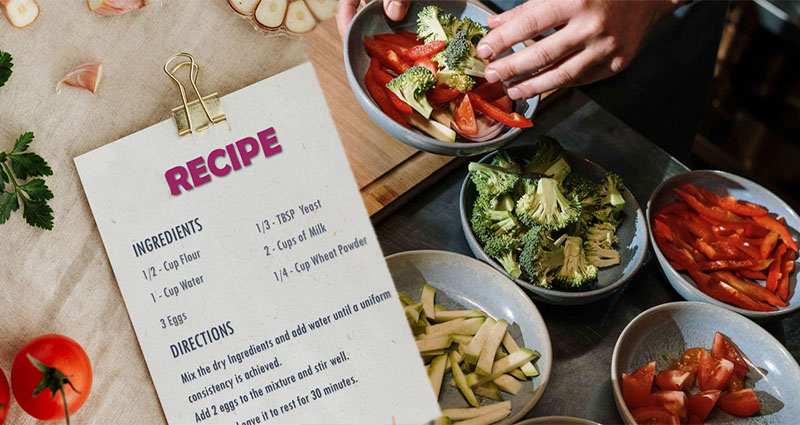To start cooking, read the recipe carefully before you begin. Prepare ingredients in batches. Avoid the dreaded slipping cutting board. Cook in small batches to ensure even cooking. Listed below are some cooking tips for beginners:
Prepare ingredients
Regardless of the type of recipe, you will have to prepare ingredients when cooking for beginners. For the basics, make sure to clean and cut ingredients before beginning the cooking process. A chopping board, a knife, and the recipe are all essential tools. You’ll also need to know which kitchen equipment is needed. Read through the recipe to determine which ones are most important for the dish. After preparing the ingredients, prepare the cooking area.
Read a recipe before cooking
If you’re new to the kitchen, one of the first steps you should take is to read a recipe. The recipe will tell you what ingredients you need, how much you need, and how many servings the dish will yield. By reading the recipe, you’ll avoid any confusion and can start cooking with confidence. The next step is to prepare the ingredients and allot enough time to complete the task. You can then follow the video to learn how to prepare the dish.
Prepare food in batches
You may not be used to batch cooking, but this method is a great way to save time and money. Using this method will save you from multiple trips to the grocery store. You will only need basic seasonings, such as salt and pepper. Healthy cooking oil is optional. You can mix and match different types of food to create your own signature recipes. Batch cooking is also a great way to save money by preventing food waste.
Avoid cutting board slips
Getting a good grip on your cutting board is important to prevent slipping while cutting. You can use a damp towel to prevent slipping or use a non-slip mat. If your cutting board is very large, you may need two towels. If it’s very slippery, try using an adhesive grip. In the end, you’ll be much safer. In the meantime, your board will stay stable.
Season food properly
A good tip for seasoning food is to always taste it as you go. This will help you train your taste buds and make the cooking process more enjoyable. Also, you can adjust the salt level of a recipe to your preferences, rather than strictly following a recipe. Adding too much salt may turn out to be too strong, so you should only season as much as your taste buds can handle. Here are some tips for seasoning food properly for beginners.
Preserve pre-cut vegetables in cold water
If you are a novice in food preservation, you should not use the method of preserving pre-cut vegetables in cold water. Those who are new in food preservation often discard the most nutritious part of a vegetable and end up throwing away the remaining parts. To prevent this from happening, use a method of preserving pre-cut vegetables that uses an ice bath instead of boiling. Beginners should start by drying vegetables, such as green tomatoes, before storing them in a covered glass container.
Make a great salad
A good salad includes one or two elements from each major food group, such as starch, protein and vegetables. For a more artistic salad, try combining various shapes, colors and textures. Aim for a minimum of six ingredients, since too few may bore your palate and too many may be too overwhelming. To tie the elements together, add a substantial dressing. Choose a creamy dressing if you are a novice.









